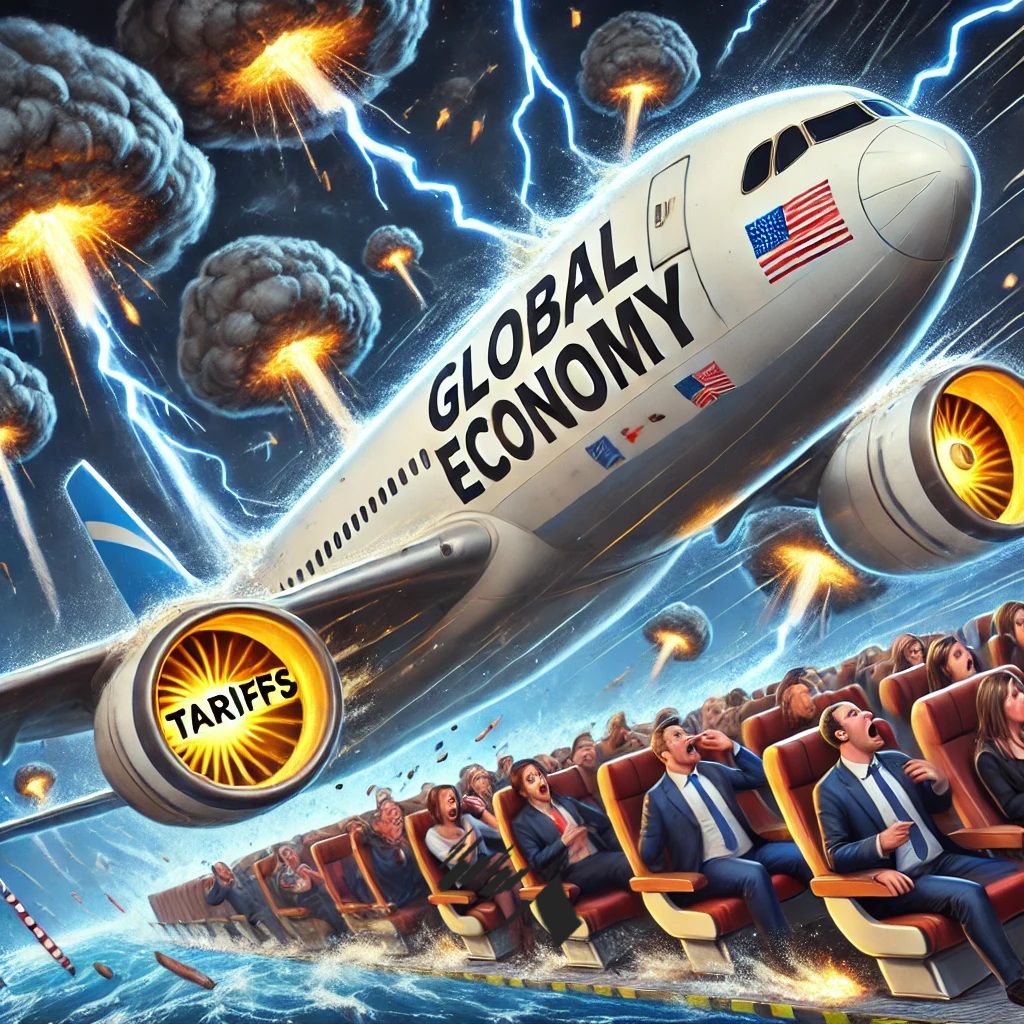
One of the biggest headlines since President Donald Trump’s election has been the volatile stock market. You may be wondering: Is now a good or bad time to invest in the stock market? President Donald Trump is a dramatic leader who is constantly shaking things up around the country and the world. Should you change something in your investment plans and 401(k) portfolios in reaction? Investing can be complex, especially during volatile times; however, level-headed thinking and experience provide valuable guidance.
The President Means Business
Trump supporters argue that this is an excellent investment environment. Based on his extensive experience and financial success, President Trump is the most business-minded president in history. His “America First” and DOGE policies focus on job creation, tax reduction, government efficiency, and increased infrastructure investment, which should stimulate the economy.
Retail mutual fund investors have continued to pour money into stocks, buying the dips and then riding the highs. If you’re a die-hard Trump fan, as most frum people are, you may be tempted to increase your investment in the stock market drastically. This is not necessarily a wise move, however.
Local and Global Politics Are Messy
Firstly, there is a long distance from proposal to policy, and Trump’s most aggressive ideas may remain just ideas. As the President has learned, judicial and congressional authorities must ultimately approve his most significant initiatives. This is always a drawn-out process, especially in these divisive times. As an anti-establishment candidate, Trump can’t even count on unwavering Republican support. And while MAGA voters love his blunt and combative style, he faces an increasingly hostile environment in Washington, which makes it less likely that his campaign promises will be easily fulfilled.
Trade War’s Unpredictable Effects
It is also virtually impossible to logically predict the effects of current events on the market, as they tend to have multiple and counterintuitive ripple effects. President Trump’s earth-shattering trade agenda may be more damaging than helpful to the economy, especially now. The United States is a major exporter of goods and services, with numerous companies generating substantial international revenue. Airline manufacturer Boeing, for example, generates 70% of its airplane business from foreign countries! Boeing shareholders and employees will be significantly impacted if retaliatory taxes and barriers are imposed worldwide.
Trade wars will harm many US companies and significantly increase the likelihood of a substantial decline in economic growth, job losses, and stock prices. The President believes that the short-term pain of rebuilding America’s manufacturing sector is worth it, and he may be correct. However, with numerous variables and factors, effects, and ripple effects at play, it’s exceedingly difficult to predict how things will unfold.
Tax Cuts Versus Government Deficits
As another example of the unpredictability of macroeconomic policy, the proposed Trump tax cuts can have both positive and negative effects, making it almost impossible to use them as a reason to take action. Tax cuts put extra money in the pockets of businesses and consumers, thereby stimulating economic growth. However, without lowering government spending, tax cuts will also raise the national debt. This, in turn, can cause inflation and higher interest rates, which increase debt burdens on businesses and consumers, ultimately draining their resources.
Warren Buffett’s Advice
Which effect will prevail? Will Trump’s policies move forward? In what form? And will they make investment markets boom or bust? When? No one can know definitively ahead of time. And that’s why investment experts recommend ignoring the news when planning your investment strategy.
Take investing legend Warren Buffett, for example. (The seasoned billionaire investor is not a fan of the current trade war, by the way.) Buffett strongly counsels against jumping in and out of the market based on news headlines. He says that while the stock market can be highly volatile and even irrational in the short term, it has proven itself to be a consistent money maker over the long term. Buffett recommends buying a well-diversified portfolio of well-run American companies (via a low-fee index fund) and holding on to them through thick and thin.
Stick To the Plan
It has been proven that most investors who lose money in the stock market do so by jumping in when the market is performing well (i.e., buying high) and then panicking and selling when it inevitably falls (selling low). Everyone knows that buying high and selling low is a great way to lose money, but without a disciplined plan, emotions overtake logic. The investment roller-coaster is not made to be run halfway. Make a sensible investment plan by reading a few books or meeting a financial advisor, and stick to it rather than following the noise. Your future portfolio will thank you.
Diversification Is a Must
But what is a sensible investment plan? Given the uncertainty of life, it’s prudent to design a portfolio that can perform well under various scenarios. As readers may recall, I’m somewhat cautious about investing solely in US stocks, such as the S&P 500. The US may continue outshining all other countries, but maybe not. And during particularly tough economic times, bonds, even a bit of gold, offer a stabilizing element. Especially if your time horizon is years, rather than decades, diversifying your holdings can increase returns while reducing risk.
Vigilance Is Required
Although I’m generally counseling to keep an even investment keel during these Trump turmoils, volatile times call for extra vigilance, BH. We will be writing about practical ways to prepare for a potentially severe economic slowdown. No one knows precisely when one will come, but painful recessions occasionally appear. There are even some hints of stagflation now, a unique combination of a stagnant economy coupled with rising inflation. We can look back to the 1970s for ideas of how to cope with that vexing monetary challenge. BH, we will all do our reasonable hishtadlus, look out for each other, and yihey b’seder m’tzuyan!
Want to dig deeper?
Try these related articles
Theranos Explodes: Lessons for Investors